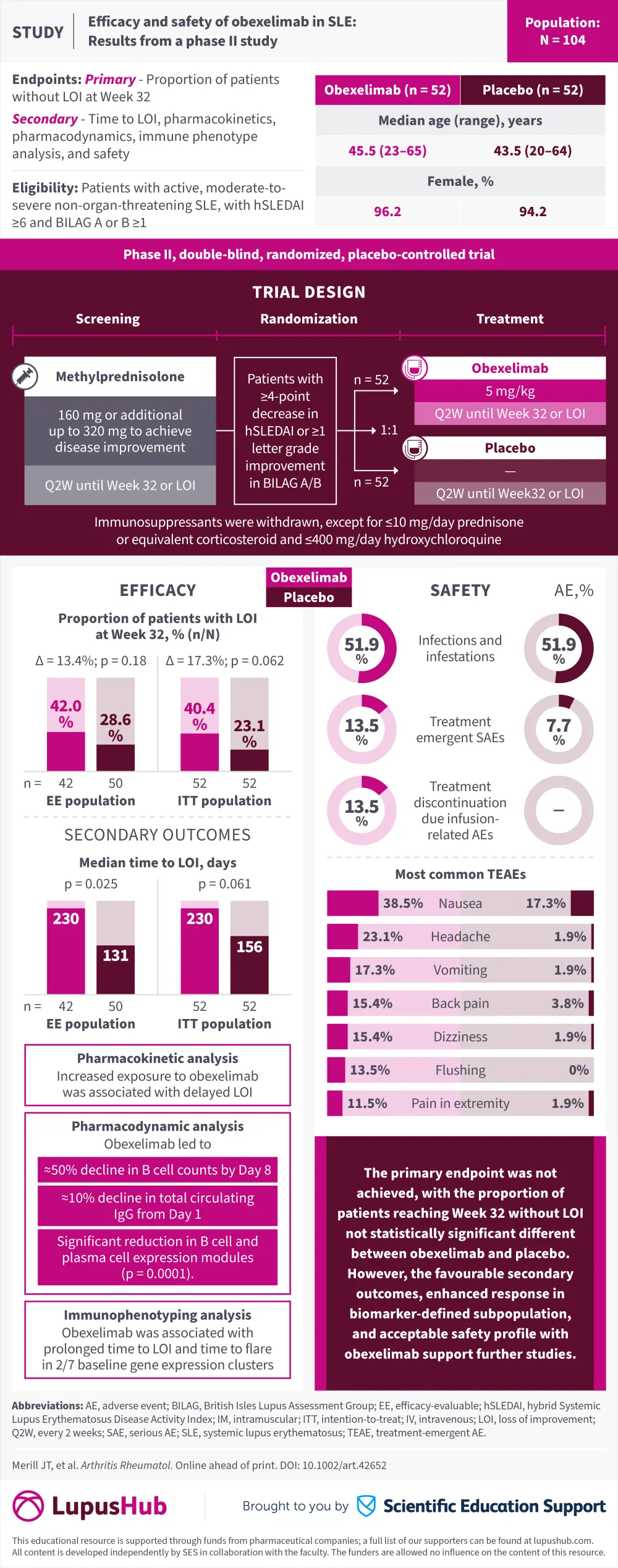All content on this site is intended for healthcare professionals only. By acknowledging this message and accessing the information on this website you are confirming that you are a Healthcare Professional.
The lupus Hub website uses a third-party service provided by Google that dynamically translates web content. Translations are machine generated, so may not be an exact or complete translation, and the lupus Hub cannot guarantee the accuracy of translated content. The lupus and its employees will not be liable for any direct, indirect, or consequential damages (even if foreseeable) resulting from use of the Google Translate feature. For further support with Google Translate, visit Google Translate Help.
The Lupus Hub is an independent medical education platform, supported through a founding grant from AstraZeneca. Funders are allowed no direct influence on our content. The levels of sponsorship listed are reflective of the amount of funding given. View funders.
Now you can support HCPs in making informed decisions for their patients
Your contribution helps us continuously deliver expertly curated content to HCPs worldwide. You will also have the opportunity to make a content suggestion for consideration and receive updates on the impact contributions are making to our content.
Find out more
Create an account and access these new features:
Bookmark content to read later
Select your specific areas of interest
View lupus content recommended for you
Visual abstract | Efficacy and safety of obexelimab in SLE: Results from a phase II study
Do you know... In a phase II clinical trial, how did obexelimab impact the time to loss of improvement (LOI) compared with placebo?
Systemic lupus erythematosus (SLE) is a complex, heterogenous, chronic autoimmune disorder. The underlying mechanisms of SLE are driven by the enhanced activity and prolonged survival of B cells due to abnormalities in the B cell receptor (BCR). Several regulators, such as CD19 (B cell-exclusive surface protein) and CD32b (Fcγ receptor IIb [FcγRIIb]), impact BCR signaling. FcγRIIb activation plays a crucial role in suppressing autoimmunity by attenuating BCR signaling, leading to decreased B cell response to activating signals. Thus, targeting CD19 and FcγRIIb could serve as a potential treatment approach for SLE.
Obexelimab is an investigational, humanized, noncytolytic, monoclonal antibody. The antibody variable region of obexelimab exhibits a strong binding affinity to human CD19, while its Fc component binds to FcγRIIb, resulting in inhibition of B cells, plasmablasts and CD19+ plasma cells.
Merrill et al. recently published an article in Arthritis & Rheumatology, on a phase II, proof-of-concept study (NCT02725515) evaluating the efficacy and safety of obexelimab in patients with SLE. We are pleased to summarize the key findings in our visual abstract below.

References
Please indicate your level of agreement with the following statements:
The content was clear and easy to understand
The content addressed the learning objectives
The content was relevant to my practice
I will change my clinical practice as a result of this content

